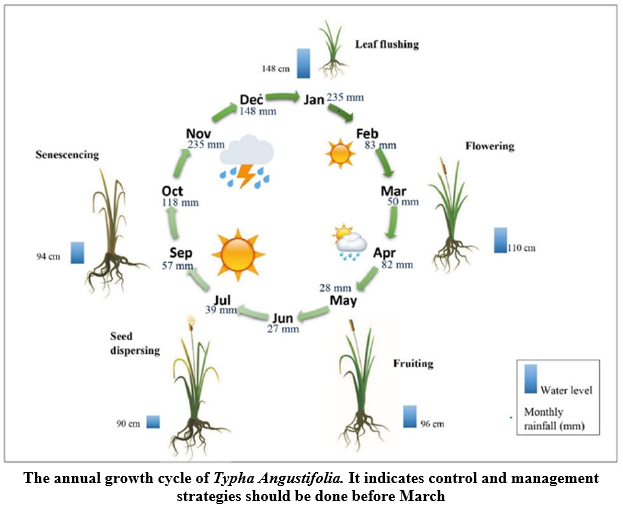|
Bundala wetlands are declared as a Ramsar wetland in Sri Lanka. Two of the wetlands in Bundala have transformed from saline areas into freshwater ecosystems due to irrigation water discharge for Lunagwehera(nearly 1.28 × 107 m3 of drainage water/annum). This resulting ecosystem and habitat changes presumably have favored plant invasions. We hypothesized that this change is due to climate/rainfall changes and irrigation practices. The objective of this research is to determine the influence of rainfall and irrigation practices in the catchment on water level and plant nutrient availability that could potentially change ecology of these wetlands. Monthly rainfall data for the Bundala area (1988–2017) were statistically analyzed, and a statistically significant change in rainfall was not discernible, confirming climate change is unlikely to be a driver of increasing the lagoon water level. Irrigation drainage has resulted in decreased salinity, while inundation and plant nutrient content increased, changing the wetlands' ecology and socioeconomic status of the dependent rural communities.
|
 |
|
|
K M K Patabendige, M D Amarasinghe, R M C S Ratnayake, D D G L Dahanayaka Irrigation and Drainage |
||
Abstract:- https://doi.org/10.1002/ird.2797
|
||

- 011 2903539 / 539
- officerc@kln.ac.lk
- Mon - Fri 8:00 - 17:00
Quick Links
Contact us
Research council
University of Kelaniya, Kelaniya 11600,
Sri Lanka
+094 (112) 903 539
officerc@kln.ac.lk
Latest News
Test
